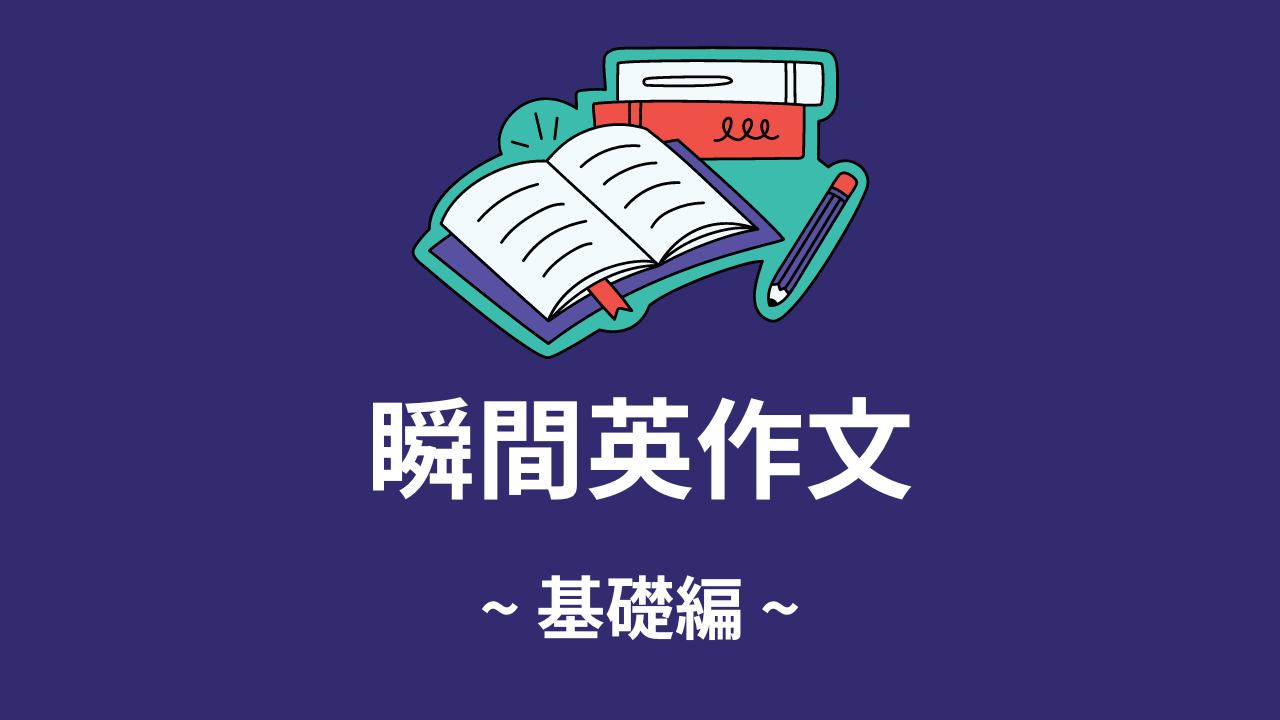基礎編
基本5文型
私は毎日新聞を読む。
I read the newspaper every day.
彼女は毎日犬と散歩する。
She walks with her dog every day.
私の母は教師です。
My mother is a teacher.
彼はとても面白い本を持っている。
He has a very interesting book.
私は彼女に手紙を書きます。
I write a letter to her.
句・節・文を使った表現
私が作ったケーキはとてもおいしい。
The cake that I made is very delicious.
私が昨日見た映画はとても感動的だった。
The movie that I saw yesterday was very moving.
これは、私が知っている中で最も難しい問題です。
This is the most difficult problem that I know.
彼が住んでいる家は大きい。
The house where he lives is big.
私が初めて会った時、彼は学生だった。
When I first met him, he was a student.
現在進行形・過去進行形
彼は今、ピアノを弾いています。
He is playing the piano now.
彼女は昨日この時間にテニスをしていました。
She was playing tennis at this time yesterday.
私たちは今、家庭の宿題をやっています。
We are doing our homework now.
あなたは昨日の午後、何をしていましたか?
What were you doing yesterday afternoon?
私は現在、新しいプロジェクトに取り組んでいます。
I am working on a new project now.
彼らは昨晩パーティーを開いていました。
They were having a party last night.
未来形・未来進行形
明日、彼はパーティーに行くでしょう。
He will go to the party tomorrow.
来週、私たちは野球をするつもりです。
We are going to play baseball next week.
彼女は来月新しいプロジェクトを始めるでしょう。
She will start a new project next month.
あなたは明日何をするつもりですか?
What are you going to do tomorrow?
私は次の週末には旅行しているでしょう。
I will be traveling next weekend.
完了型
彼はすでに本を読みました。
He has already read the book.
私たちは昼食にピザを食べました。
We have eaten pizza for lunch.
彼はテレビを見ました。
He has watched TV.
彼女はピアノを弾きました。
She has played the piano.
疑問文
雨が降っていますか?
Is it raining?
トムは映画を見ましたか?
Did Tom watch a movie?
この本は面白いですか?
Is this book interesting?
彼女は夕食を作りましたか?
Did she make dinner?
私たちは明日ピクニックに行くべきですか?
Should we go to the picnic tomorrow?
命令文
テーブルを片付けなさい。
Clear the table.
宿題をやりなさい。
Do your homework.
There is/are 構文
部屋にはテーブルがあります。
There is a table in the room.
公園にはたくさんの鳥がいます。
There are many birds in the park.
箱の中には何もありません。
There is nothing in the box.
空には星があります。
There are stars in the sky.
クラスには20人の学生がいます。
There are 20 students in the class.
助動詞
私はあなたを助けるべきでしょう。
I should help you.
彼女はそのニュースをすでに知っているでしょう。
She must know the news already.
私たちはそこに行くかもしれません。
We might go there.
彼はその試験に合格できるでしょう。
He could pass the exam.
能動態・受動態
彼女がその本を読みました。
She read the book.
その本は彼女によって読まれました。
The book was read by her.
彼が窓を開けました。
He opened the window.
窓は彼によって開けられました。
The window was opened by him.
私がそのケーキを焼きました。
I baked the cake.
そのケーキは私によって焼かれました。
The cake was baked by me.
彼らがその家を建てました。
They built the house.
その家は彼らによって建てられました。
The house was built by them.
不定詞
彼は本を読むために図書館に行きます。
He goes to the library to read books.
私たちは新しい言語を学ぶことが好きです。
We like to learn new languages.
彼女は彼に会うために早く起きました。
She woke up early to meet him.
私は日本に住むために日本語を学んでいます。
I am learning Japanese to live in Japan.
彼は彼女にプロポーズするためにリングを買いました。
He bought a ring to propose to her.
動名詞
彼は本を読むのが好きです。
He likes reading books.
私たちは新しい言語を学ぶのが好きです。
We enjoy learning new languages.
彼女は音楽を聞くのを止めました。
She stopped listening to music.
私は泳ぐのが好きです。
I love swimming.
彼は毎日走るのを習慣にしています。
He makes a habit of running every day.
現在分詞・過去分詞
彼はテレビを見ているところです。
He is watching TV.
テレビを見た後で、彼は眠った。
Having watched the TV, he fell asleep.
彼女は料理を作りながらラジオを聞いていました。
She was listening to the radio while cooking.
使われた紙をリサイクルすることは大切です。
Recycling used paper is important.
彼はテレビを見ている間に眠りに落ちました。
He fell asleep while watching TV.
仮定法
もし彼がここにいたら、彼はそれを修理できるでしょう。
If he were here, he could fix it.
もし私があなたの立場だったら、私はその仕事を受けます。
If I were in your position, I would take the job.
もし彼女が早く起きていたら、彼女はその電車に乗れたでしょう。
If she had woken up earlier, she could have caught the train.
もし私が彼の電話番号を知っていたら、私は彼に電話します。
If I knew his phone number, I would call him.
もし彼がそのニュースを知っていたら、彼は驚くでしょう。
If he knew the news, he would be surprised.
関係詞
彼が読んでいる本はとても面白い。
The book that he is reading is very interesting.
私が住んでいる町は静かです。
The town where I live is quiet.
彼女が昨日買った服はとてもおしゃれだ。
The clothes she bought yesterday are very stylish.
これは私が知っている最も難しい問題だ。
This is the most difficult problem that I know.
私が最初に会った人は彼だった。
He was the first person who I met.
前置詞
彼女は7時に学校に到着します。
She arrives at school at 7 o’clock.
彼は彼女と一緒に映画を見ました。
He watched a movie with her.
私たちは夏休み中に旅行に行きます。
We will go on a trip during summer vacation.
彼は月曜日から金曜日まで働きます。
He works from Monday to Friday.
彼は学校の前にコーヒーショップで待っていました。
He was waiting in the coffee shop in front of the school.
接続詞
彼は疲れていましたが、彼は仕事を終えました。
He was tired, but he finished his work.
雨が降ったので、私たちは家にいました。
We stayed at home because it was raining.
彼は早起きしたので、彼は電車に間に合いました。
He caught the train because he woke up early.
彼女はテレビを見ていたが、私は本を読んでいました。
While she was watching TV, I was reading a book.
私は彼が来るまで待ちます。
I will wait until he comes.
that節・wh節
彼がどこに住んでいるか知っていますか?
Do you know where he lives?
彼が何をしたか教えてください。
Please tell me what he did.
彼女がどう思うかは重要です。
It’s important what she thinks.
私は彼が嘘をついていると思います。
I think that he is lying.
彼がどのくらい早くそこに到着できるかは不明です。
It is unclear how soon he can get there.
形容詞
彼の新しい車は速いです。
His new car is fast.
彼女はとても美しい。
She is very beautiful.
このスープはとても暖かい。
This soup is very warm.
彼のアイデアは創造的だ。
His idea is creative.
私の部屋はきれいだ。
My room is clean.
副詞
彼は速く走ります。
He runs quickly.
彼女は非常に上手にピアノを弾きます。
She plays the piano very well.
私は明日早く起きます。
I will wake up early tomorrow.
彼はたまに遅刻します。
He is occasionally late.
彼女はいつも時間通りに来ます。
She always arrives on time.
代名詞
これは私のペンです。
This is my pen.
あれはあなたのバッグですか?
Is that your bag?
私たちは友人と一緒に映画を見ました。
We watched a movie with our friends.
それは彼らの家です。
That is their house.
彼は彼女にプレゼントをあげました。
He gave her a present.
比較
彼は私より背が高い。
He is taller than me.
この本はあの本よりも面白い。
This book is more interesting than that one.
彼女は私たちの中で最も若い。
She is the youngest among us.
彼はそのクラスで最も賢い。
He is the smartest in the class.
彼の車は私の車より高価だ。
His car is more expensive than mine.
